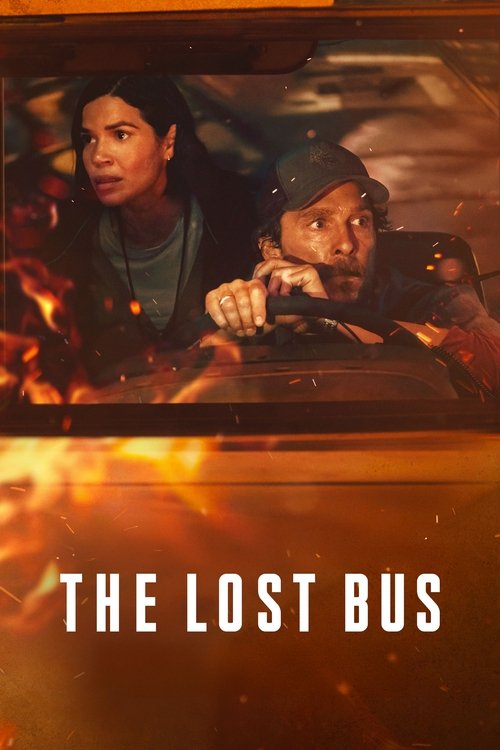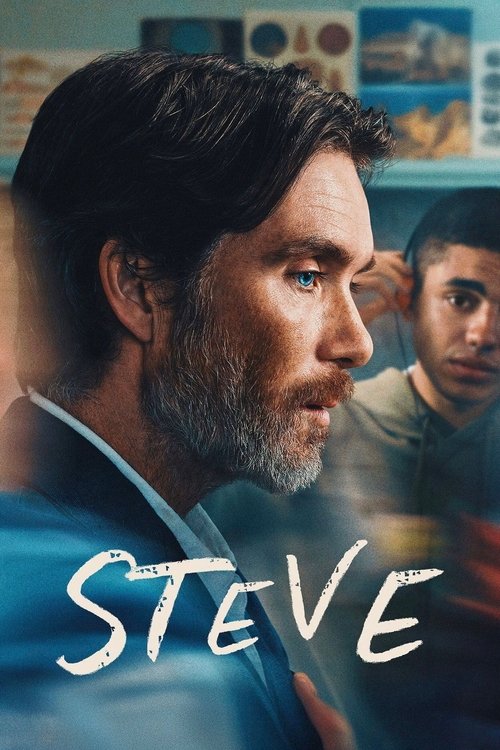
Ask Your Own Question
What is the plot?
Roman, a young man devastated by the sudden death of his identical twin brother Rocky in a car accident, struggles to cope with the profound void left in his life. The film opens with Roman grappling with this loss, feeling as though a part of himself has been irreparably severed. Seeking solace, he joins a support group specifically for "twinless twins," individuals who have lost their identical siblings. There, Roman meets Dennis, a fellow attendee who claims to have lost his own twin, Dean, in a similar tragic accident. Despite their contrasting personalities--Roman is more reserved and intense, while Dennis is awkward and socially anxious--the two quickly form a close bond, united by their shared grief and loneliness.
As their friendship deepens, Roman and Dennis spend increasing amounts of time together, engaging in everyday activities like grocery shopping, sharing meals, and even dressing alike for Halloween, symbolizing their growing connection. Dennis, portrayed with a mix of insecurity and desperation, reveals layers of complexity as he struggles internally with whether to reveal certain truths to Roman. Meanwhile, Roman begins dating Marcie, a cheerful receptionist who works with Dennis. Marcie quickly notices inconsistencies in Dennis's stories about his family and background, which raises her suspicions.
Unbeknownst to Roman, Dennis harbors a dark secret: he never had a twin. His twin, Dean, never existed. Dennis fabricated this part of his identity to gain Roman's trust and closeness. More painfully, Dennis had a passionate date with Rocky shortly before Rocky's death and inadvertently caused the fatal accident. On the day Rocky died, Dennis called out to him in the street, distracting him just as a speeding car approached, leading to the tragic collision. This revelation adds a layer of guilt and desperation to Dennis's character, as he is haunted by his role in the death of the man Roman loved most.
Marcie, determined to protect Roman from further harm, confronts Dennis and insists he confess the truth. The tension culminates during a night when Roman and Dennis share a hotel room after attending a hockey game. A drunken Dennis makes an unexpected and intimate advance by sucking Roman's toes while massaging his foot, an act that shocks and confuses Roman. When Roman rejects him, Dennis breaks down and admits his deception--that he never had a twin and that he was responsible for Rocky's death. The betrayal devastates Roman, who reacts violently by punching Dennis repeatedly before storming out of the room.
Following this confrontation, Roman and Dennis sever all ties, each retreating into social isolation. Roman, despite beginning a relationship with Marcie, feels an unfillable emptiness, as the unique bond he shared with Dennis--rooted in their twinless grief--cannot be replaced. Dennis, on the other hand, is consumed by guilt and loneliness, his desperate attempts to maintain a connection with Roman having backfired.
Some time later, fate brings Roman and Dennis together again at a diner. In a poignant moment, they simultaneously ask a waitress for a to-go box, mirroring a quirky habit Roman and Rocky once shared. This small act symbolizes the lingering connection between them, despite the pain and betrayal that fractured their friendship. The film closes on this bittersweet note, emphasizing the complexity of grief, friendship, and the human need for intimacy.
Throughout the narrative, the film explores themes of loss, identity, and the desperate lengths people go to in order to fill emotional voids. The characters' interactions are marked by moments of awkwardness, tension, and raw vulnerability. Roman's journey is one of navigating the unique grief of losing a twin, while Dennis's arc reveals the destructive consequences of lies born from loneliness and guilt.
No other character deaths occur beyond Rocky's tragic accident, which serves as the catalyst for the entire story. The film does not feature battles or political intrigue but focuses intensely on the psychological drama and interpersonal dynamics between Roman, Dennis, and Marcie. The plot twists center on Dennis's deception and the revelation of his indirect role in Rocky's death, which shatters the fragile trust between the two men.
In the end, Roman remains deeply affected by the loss of both his twin and the friendship that followed. Dennis's confession and the subsequent fallout underscore the fragile nature of human connections, especially when built on falsehoods. The film's final scene, with Roman and Dennis's synchronized request for a to-go box, leaves viewers with a haunting image of shared grief and the enduring impact of lost relationships.
What is the ending?
The ending of Twinless (2025) reveals that Dennis, the man Roman befriends in the twin bereavement support group, was responsible for the death of Roman's twin brother, Rocky. After Rocky's death, Dennis begins stalking Roman, which leads to a tense confrontation between the two. The film closes with Roman confronting Dennis about the truth, leaving their relationship and Roman's path forward uncertain but charged with emotional intensity.
Expanding on the ending scene by scene:
The final act begins with Roman and Dennis attending another session of the twin loss support group. The atmosphere is tense, as Roman has begun to suspect Dennis's dark secret. Dennis, who initially seemed like a supportive friend, is revealed through flashbacks and subtle clues to have been involved in Rocky's death. This revelation is not presented abruptly but unfolds gradually, heightening the emotional stakes.
Roman's internal turmoil is palpable as he processes the betrayal. The film shows him grappling with grief compounded by anger and confusion. Dennis's behavior becomes increasingly erratic and obsessive, culminating in him stalking Roman outside the support group setting. This stalking is depicted with a mix of unease and psychological tension, emphasizing Dennis's unstable state.
The climax occurs when Roman confronts Dennis in a private, emotionally charged scene. Roman demands answers, and Dennis admits his role in Rocky's death, though the exact circumstances remain somewhat ambiguous, adding to the film's psychological complexity. The confrontation is raw, with both men exposing their vulnerabilities and pain.
The film ends without a neat resolution. Roman is left to navigate the aftermath of this revelation, his grief now intertwined with betrayal and fear. Dennis's fate is left open-ended; he does not face immediate consequences within the film's timeline but is portrayed as a deeply troubled individual whose actions have irrevocably altered Roman's life.
This ending underscores the film's exploration of grief, trust, and the complicated nature of human connections, especially when shadowed by trauma and secrets. Roman's journey closes on a note of unresolved tension, reflecting the messy, often painful reality of loss and the search for closure.
Is there a post-credit scene?
The movie Twinless (2025) does not have a post-credits scene. None of the available sources or detailed reviews mention any additional scene after the credits. The film concludes with a powerful and complex ending that recontextualizes the story, but no post-credits content is reported.
What secrets does Dennis harbor that threaten his friendship with Roman?
Dennis harbors hidden secrets that complicate and threaten the intense friendship he forms with Roman after they meet in the twin loss support group. These secrets are gradually revealed as the story progresses, creating tension and uncertainty in their relationship.
How does Dylan O'Brien portray both Roman and his deceased twin Rocky?
Dylan O'Brien plays a dual role as Roman and his deceased twin brother Rocky, delivering a nuanced and emotionally deep performance that captures the complexities of both characters. His portrayal of Rocky is particularly noted for being entrancing, adding emotional weight to Roman's grief and the story overall.
What role does Marcie, Dennis' co-worker, play in the story?
Marcie, played by Aisling Franciosi, is Dennis' ebullient co-worker who becomes a key figure when Roman meets her. Her presence triggers revelations that things are not as they seem between Roman and Dennis, contributing to the unraveling of their friendship as secrets come to light.
How does the film depict the emotional struggles of losing a twin through Roman's character?
Through Roman, the film explores the profound grief and identity crisis that follows the loss of a twin. Roman openly expresses his pain, saying things like 'I feel like being a twin kind of ruined me,' highlighting his struggle to find solace and a sense of self without his brother Rocky. His journey is marked by vulnerability and the search for connection.
What is the nature of the friendship between Roman and Dennis, and how does it evolve?
Roman and Dennis form an unlikely and intense friendship after meeting in a support group for twinless twins. Despite their differences, they become emotional supports for each other. However, as their friendship deepens, their personal weaknesses and hidden secrets complicate their bond, leading to tension and challenges that test their connection.
Is this family friendly?
The movie Twinless (2025) is not specifically described as family friendly and involves mature themes such as grief over the loss of a twin, complex emotional struggles, and adult relationships. It contains some humor but also deals with sensitive topics like bereavement and identity, which may be upsetting for children or sensitive viewers.
Potentially objectionable or upsetting aspects include:
- Emotional scenes involving grief and loss of a sibling, which may be intense or distressing.
- Adult themes related to identity, relationships, and personal secrets.
- Some language and situations that reflect mature, possibly LGBTQ+ themes and dynamics.
- Scenes that may involve complex interpersonal conflicts and emotional vulnerability.
There is no indication of explicit violence or graphic content, but the film's focus on adult emotional experiences and nuanced relationships suggests it is better suited for mature audiences rather than children or those sensitive to grief and emotional complexity.








































